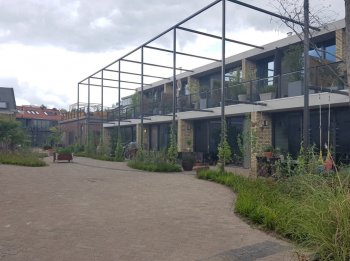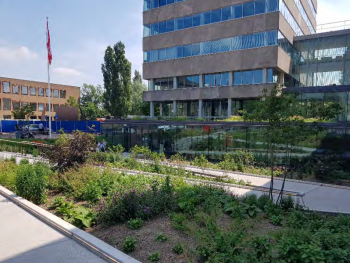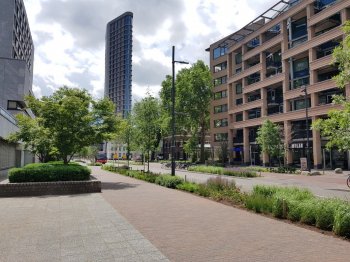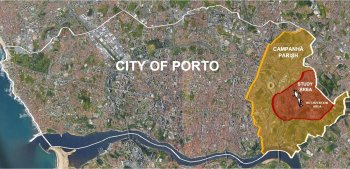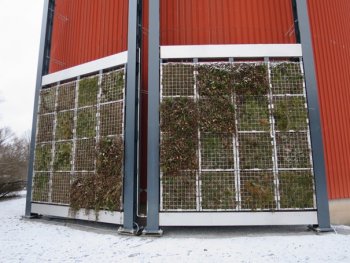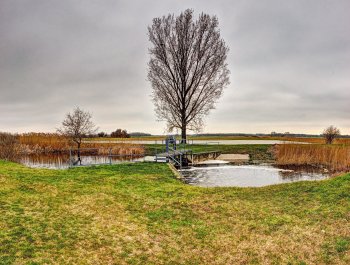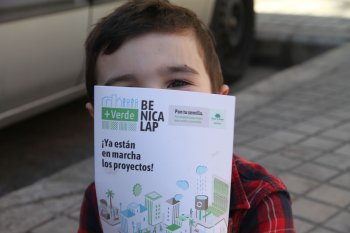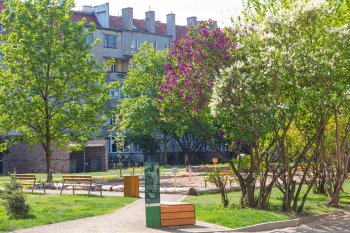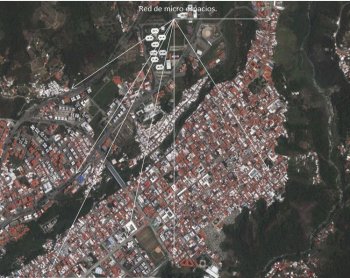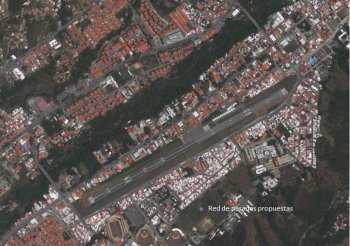UNaLab - Nutsbedrijven Regio Eindhoven, Eindhoven, the Netherlands
The community at Nutsbedrijven Regio Eindhoven aimed at rehabilitating the old industrial area to a livable urban space. This initiative served as a participatory planning and governance, and social capacity building action as citizens were driving the development of the area and NbS implementation.

